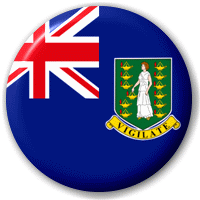Types of Companies in the BVI for Non-Residents
The British Virgin Islands (BVI) is one of the most popular offshore jurisdictions for international entrepreneurs, investors, and corporations. With its stable political environment, common law legal system, and flexible business regulations, BVI company formation offers an attractive option for non-residents seeking to expand their global footprint. Whether you’re establishing a holding company, managing investments, or engaging in cross-border trade, the BVI provides a range of company types tailored to diverse needs.
This comprehensive guide explains the main types of companies in the BVI for non-residents, their features, legal requirements, and strategic uses. If you’re new to offshore structuring, we also recommend reviewing our FAQ on BVI company formation for detailed answers to common questions.
Why Non-Residents Choose BVI for Company Formation
Before diving into company types, it’s worth exploring why so many foreign individuals and entities choose BVI company formation:
- No local corporate taxes on income earned outside the BVI
- Confidentiality for shareholders and beneficial owners
- Flexible corporate structures suitable for holding, trading, or investment
- Fast and affordable incorporation (typically within 1–3 days)
- Ease of international banking and legal recognition
- Compliance with global standards (OECD, FATCA, CRS)
Non-residents can own 100% of a BVI company, act as directors or shareholders, and run their businesses entirely from abroad.
1. BVI Business Company (BC)
The most common and widely used entity in the BVI is the Business Company (BC), established under the BVI Business Companies Act, 2004.
Key Features:
- Can be formed by one director and one shareholder (same person allowed)
- Shareholders and directors can be individuals or corporate entities
- No minimum capital requirement
- No requirement for annual financial statements (unless applicable under substance rules)
- Directors’ names filed with the Registrar; shareholder info is not public
Uses:
- International trading
- Investment holding
- Asset protection
- Estate and wealth planning
Best For:
Non-residents seeking a flexible, tax-efficient vehicle with a global reputation.
2. Segregated Portfolio Company (SPC)
An SPC is a specialized form of BVI Business Company designed to separate assets and liabilities into distinct portfolios.
Key Features:
- Each portfolio is legally separate from others
- Commonly used in mutual funds, insurance, and structured finance
- Requires regulatory approval in certain cases
Uses:
- Fund management
- Insurance vehicles
- Complex investment structures with multiple stakeholders
Best For:
Non-resident fund managers, venture capital firms, or financial service providers.
3. Limited Partnership (LP)
BVI Limited Partnerships are commonly used in investment, fund structuring, and asset management.
Key Features:
- At least one general partner and one limited partner
- No requirement for general partner to be BVI-resident
- Not a separate legal entity unless expressly stated
- Can elect to be a legal entity under 2017 LP legislation
Uses:
- Private equity and hedge funds
- Family investment structures
- Co-investment or joint venture vehicles
Best For:
Non-resident investors looking for flexible, pass-through structures.
4. Restricted Purpose Company (RPC)
An RPC is a specialized BVI company type used for defined and restricted business objectives.
Key Features:
- Purpose must be clearly stated and limited
- Often used in structured finance or asset-backed transactions
- Cannot change its purpose once set
Uses:
- Securitization
- Project finance
- Financial instrument issuance
Best For:
Sophisticated non-resident investors and institutions involved in structured financial products.
5. Private Trust Company (PTC)
A PTC is a private company established to act as trustee of a family trust.
Key Features:
- Must only provide trustee services to a single family or related group
- Not required to obtain a full trust license
- Often paired with BVI trusts or foundations
Uses:
- Estate planning
- Asset protection
- Wealth preservation across generations
Best For:
High-net-worth non-residents managing complex family estates or international assets.
6. BVI Charitable and Purpose Trusts
While not companies, BVI trusts offer non-residents an alternative structure for holding assets and managing wealth.
Key Features:
- Settlor may retain control via reserved powers
- Can be charitable or non-charitable (purpose trusts)
- No requirement for public registration
Uses:
- Philanthropy
- Succession planning
- Corporate structuring
Best For:
Non-residents seeking anonymity and asset separation outside of corporate vehicles.
Choosing the Right BVI Company Type
BVI company formation offers exceptional flexibility for non-residents. From standard Business Companies to specialized entities like SPCs and PTCs, the jurisdiction allows you to build offshore structures aligned with your financial goals and international strategy.
When deciding which type of company to establish, consider the purpose, compliance obligations, and operational needs. Consulting a licensed Registered Agent or offshore advisor can help you identify the most suitable vehicle and remain compliant with both BVI laws and your home country regulations.
If you’re ready to get started, reach out to a trusted BVI formation service provider to guide you through the process efficiently and legally.

Starting Company in BVI. Types of Companies in the BVI
Related pages:

